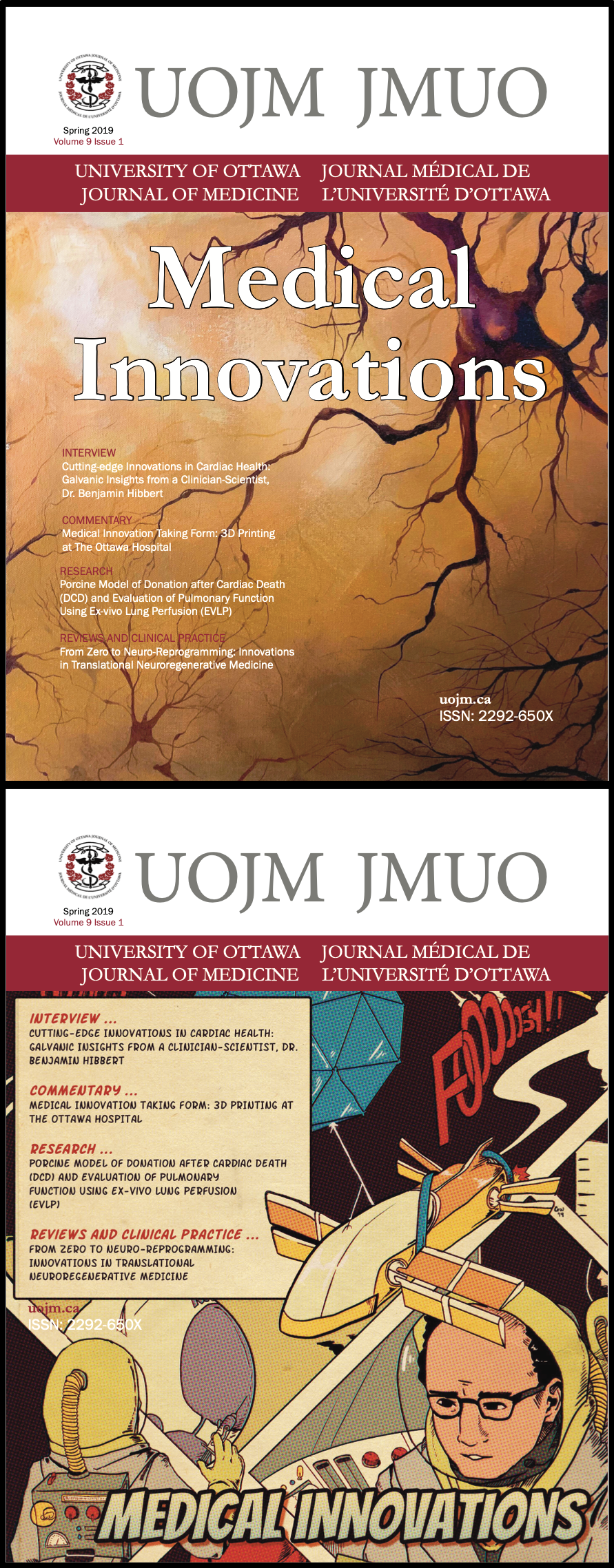Rituximab and Immune Molecule Modulation in Burkitt’s Lymphoma Cell Lines
DOI:
https://doi.org/10.18192/uojm.v9i1.4160Keywords:
Immunotherapy, immune molecules, rituximab, Burkitt's lymphomaAbstract
Objectives: Burkitt’s lymphoma is an aggressive B cell malignancy that is associated with EBV infection. The monoclonal antibody rituximab is used to treat many B cell malignancies, including Burkitt’s lymphoma. Studying immune molecule modulation in Burkitt’s lymphoma allows insight on developing new or refining existing immunotherapy agents for refractory or chemotherapy-resistant patients. The main purpose of this study was to explore rituximab’s impact on expression of immune molecules associated with immune activation or immune inhibition.
Methods: Burkitt’s lymphoma cell lines Raji, Ramos, Bjab, and an EBV-transformed B cell line, COX, were cultured and treated with an optimally-determined concentration of rituximab or human IgG for 24 hours. Immune modulation was determined by flow cytometric analysis of HLA-I, HLA-DR, PD-L1, and CD40. Three experiments were conducted for Raji, Ramos, Bjab, while 2 experiments were conducted for COX.
Results: Treatment of cells with rituximab, 10 µg/ml, completed downregulated CD20 expression and modulated expression of immune molecules. Compared to human IgG control, rituximab treatment decreased HLA-1, HLA-DR and CD40 expression on all cell lines, but significantly only for HLA-I on Bjab. Interestingly, the immune inhibitor PD-L1 was decreased on EBV-positive COX and Raji, but increased on EBV-negative Ramos and Bjab.
Conclusion: Downregulation of HLA-I could contribute to an immune escape mechanism. As this was a small study, there is limited transferability of the results to the clinical setting and further experiments are needed.
Downloads
Published
Issue
Section
License
- Authors publishing in the UOJM retain copyright of their articles, including all the drafts and the final published version in the journal.
- While UOJM does not retain any rights to the articles submitted, by agreeing to publish in UOJM, authors are granting the journal right of first publication and distribution rights of their articles.
- Authors are free to submit their works to other publications, including journals, institutional repositories or books, with an acknowledgment of its initial publication in UOJM.
- Copies of UOJM are distributed both in print and online, and all materials will be publicly available online. The journal holds no legal responsibility as to how these materials will be used by the public.
- Please ensure that all authors, co-authors and investigators have read and agree to these terms.
- Works are licensed under a Creative Commons Attribution-NonCommercial-NoDerivatives 4.0 International License.


